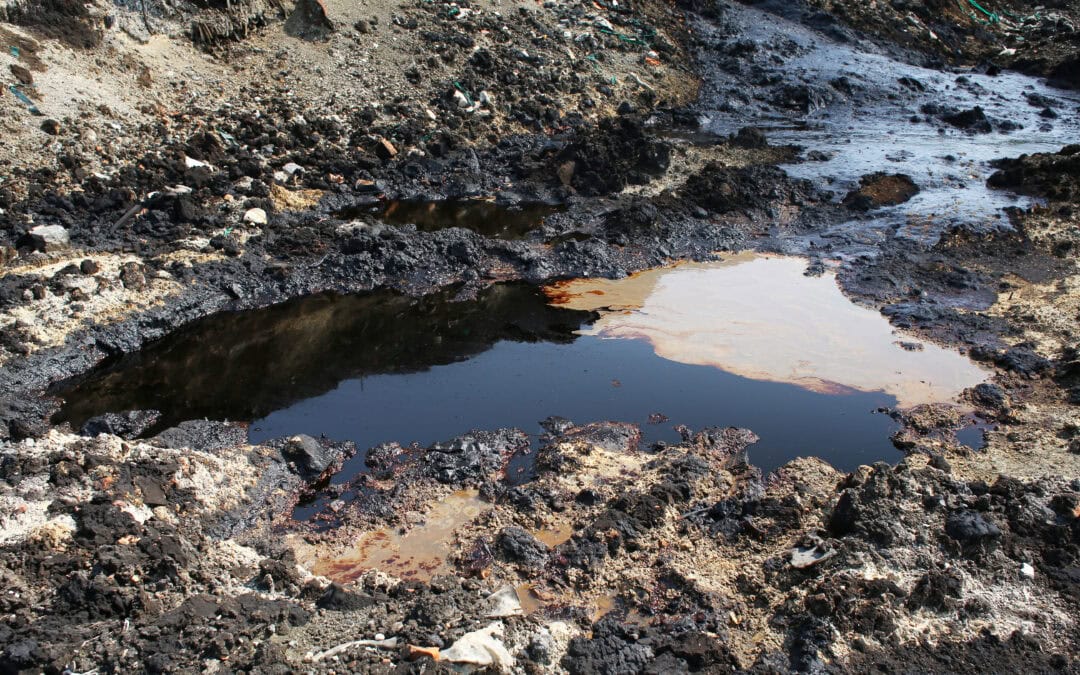Soil contamination refers to the presence of harmful chemicals in the soil. These hazardous substances can come from various sources, affecting the natural soil environment negatively. Healthy soil is vital for plant growth, wildlife habitats, and even our food. When soil quality becomes degraded through contamination, it can have a ripple effect on our lives and environment.
For landowners with property impacted by soil contamination, it can lead to a decrease in land value, making it difficult to sell the property or use it as collateral. This issue can also lead to costly clean-up operations, often requiring professional environmental rehabilitation services. Therefore, landowners must take soil contamination seriously and proactively work towards preventing it.
Primary Causes of Soil Contamination
Soil contamination is a serious environmental concern that poses significant risks to human health, wildlife, and the overall ecosystem. The culprits are numerous but primarily include industrial waste, improper agricultural practices, improper waste disposal in landfills, and sewage spills. Each of these factors introduces harmful substances into the soil, which can disrupt the balance of the ecosystem, pose threats to human health, and wreak havoc on plants and wildlife.
Industrial Waste
Industrial waste, particularly when disposed of improperly, is a significant contributor to soil contamination. In Louisiana, historic oil and gas operations are no exception. Industrial operations, both present and past, generate industrial waste, including heavy metals, chemicals, and other harmful substances. If this waste is not managed correctly, these toxins can seep into the ground, degrade soil quality and disrupt the natural environment. This not only affects the health of the soil but also impacts the plants and animals that rely on it for survival.
Agricultural Practices
Agricultural practices, specifically the overuse of pesticides, can also lead to soil contamination. These substances, while designed to protect crops from pests, can build up in the soil over time. This accumulation can upset the balance of the soil, disrupt the growth of plants, and potentially harm both humans and wildlife.
Waste Disposal and Landfills
Landfills and waste disposal sites pose another risk to soil quality. When not properly managed, they allow harmful substances — such as heavy metals and chemicals — to leach into the ground. This contamination can harm the soil’s health, impact plant growth, and even contaminate local water sources.
Sewage Spills
Lastly, sewage spills can introduce harmful bacteria and viruses into the soil. These pathogens can pose a significant health risk to humans and animals alike. Contact with contaminated soil can lead to a variety of illnesses, and in some cases, the contaminants can enter the food chain, affecting even those who have not had direct contact with the contaminated soil.
Preventive Measures for a Very Preventable Problem
Preventing soil contamination involves safe waste disposal practices, sustainable agriculture techniques, and stringent control measures on industrial processes. There are also various modern techniques, like bioremediation and phytoremediation, that can be used to clean contaminated soil and restore its health. However, oftentimes the damage is already done once these remediation efforts begin.
Legal Remedies for Soil Contamination
Those affected by soil contamination, either directly or indirectly, have the right to take legal action against the responsible parties. This legal process can potentially lead to compensation for any damages or health issues caused due to historic oil and gas operations.
Using Legacy Litigation to Help Landowners Recover
Legacy litigation is a powerful legal tool that landowners can use to combat soil contamination. These lawsuits are a form of civil action that allows landowners to seek compensation from oil and gas companies for damage to their property due to historic oil and gas operations.
Through Legacy litigation, landowners can recover the cost of property damages, the devaluation of their land, and the expenses related to cleaning and restoring the soil to its original state. These suits can also serve as a deterrent for future misconduct by oil and gas companies, encouraging them to adhere to environmental guidelines and regulations.
Tell Us About Your Soil Contamination Case
Soil contamination is a serious issue that requires legal action to hold the responsible parties accountable. At Talbot, Carmouche & Marcello, we have extensive experience in handling Legacy litigation cases, so our team understands the devastation soil contamination can bring to people’s lives. We provide legal representation for those affected, guiding our clients through the legal process to seek justice and compensation for their damages. Throughout our history, our firm has won over $3 billion in verdicts and settlements for our clients.
If your property has been impacted by soil contamination from historic oil and gas operations, contact our team for a free consultation.

